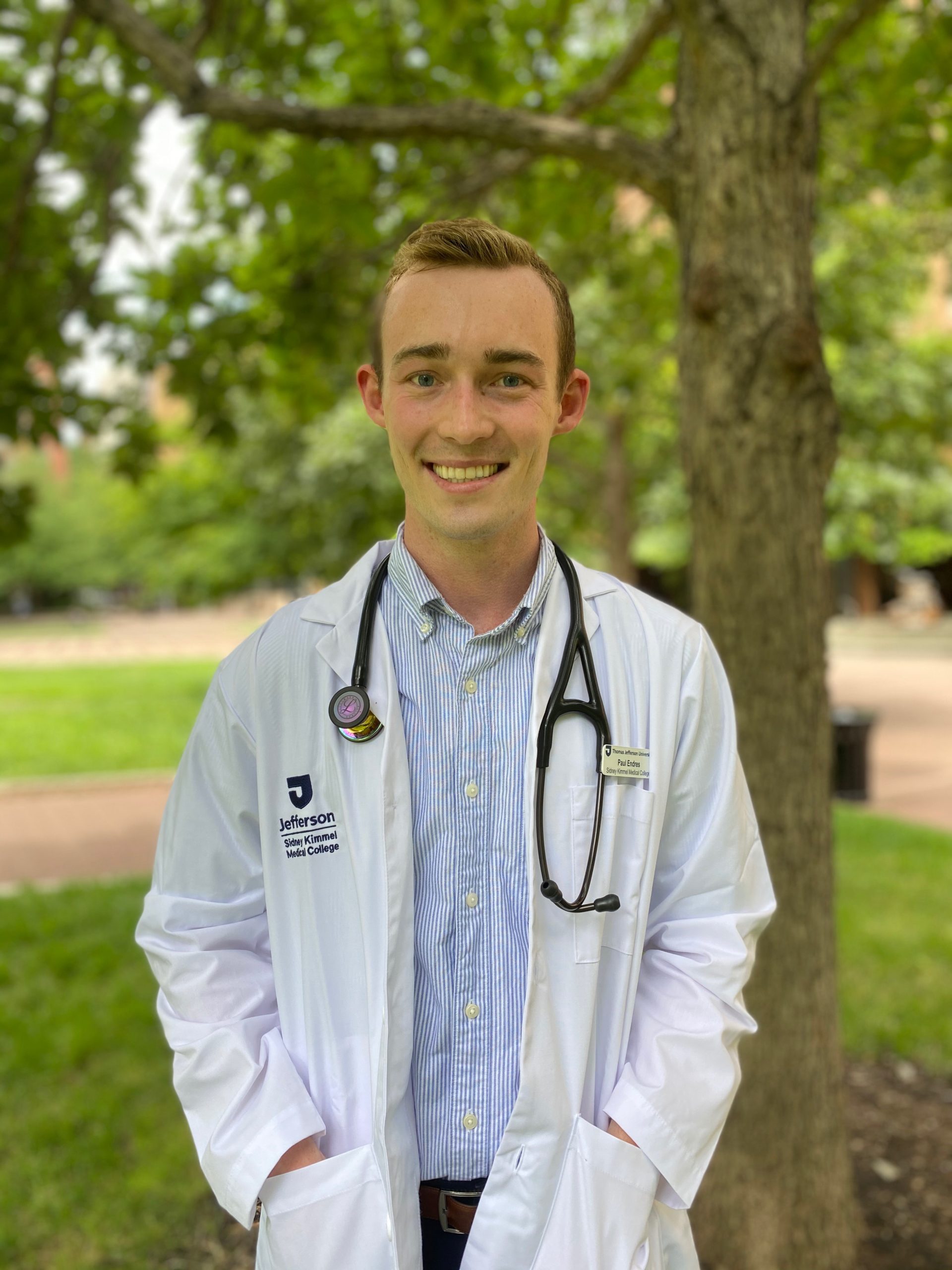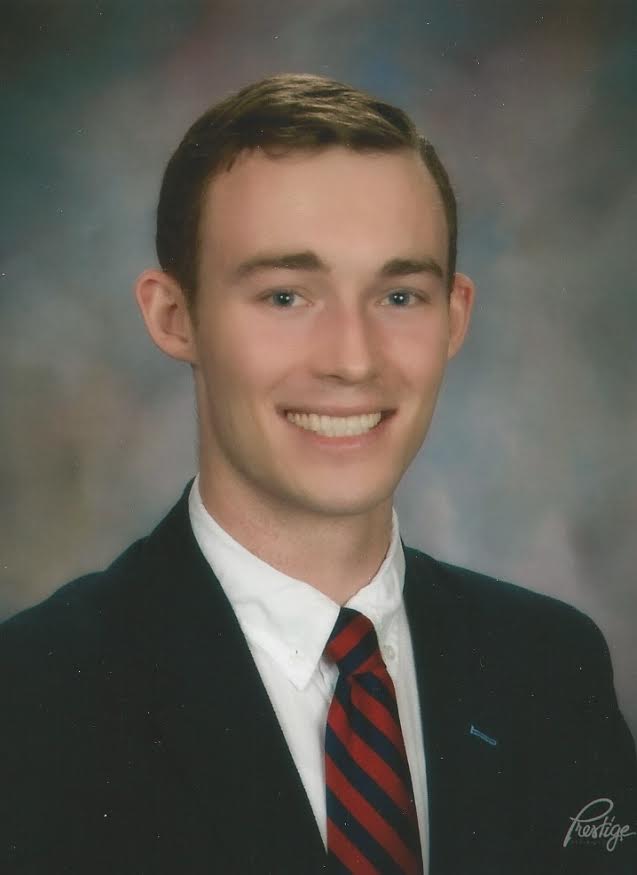Name: Paul Endres
Class Year: 2018
Title: M.D. Candidate
Organization: Sidney Kimmel Medical College, Thomas Jefferson University Hospital
1. What were you involved in when you were on campus?
On campus, I was involved in chemistry research in the Sculimbrene Lab, the chemistry student advisory committee, chemistry peer assisted learning program, STEM+E tutoring, spring break immersion, eEucharistic ministry, and ballroom dance.
2. What was your major and how did it affect your career decisions?
I was a chemistry major with a concentration in biochemistry on the pre-health track. This affected my career decision because it showed me the importance of chemistry and biochemistry in medicine. My biochem classes especially inspired my career because often times we used medical cases to study different biochemical pathways. Biochemistry is a key foundation in medicine, and I often find myself reviewing pathways I learned at Holy Cross at work to understand what my patients are going through.
3. What planned and unplanned events connected you to your industry and your first employer after Holy Cross? How did you learn/decide it was a good fit for you?
In a planned sense, I was connected to MGH through Crusader Connections. Senior year, I was always looking at every job posted and reaching out to as many alumni as I could. I had attended Healthcare, Medicine & Science Networking Night and spoke with a few clinical research coordinators about their jobs. What I loved about it was that each position was super unique! I decided this would be a good fit for me because of the variety of the work being done and the clinical experience I would gain. I actually even connected with another Holy Cross alumni in my lab currently who helped me get a foot in the door! I realized my current position would be a good fit when they told me that each day I have to be ready to be flexible. There is never a day where I will be doing the exact same thing as the last, and I enjoy the variety in what I do.
4. What are one or two skills that you developed at Holy Cross that you use in your work?
Definitely people skills for one! A Jesuit liberal arts education of educating the whole person is not just some slogan, by studying different areas it has helped me to connect with a variety of patients from different backgrounds. Additionally, my science classes taught me the data based problem solving skills that are used in medicine every day. My incredible professors instilled in me a skill to be able to look at a problem, and think of how to solve it with the data given.





